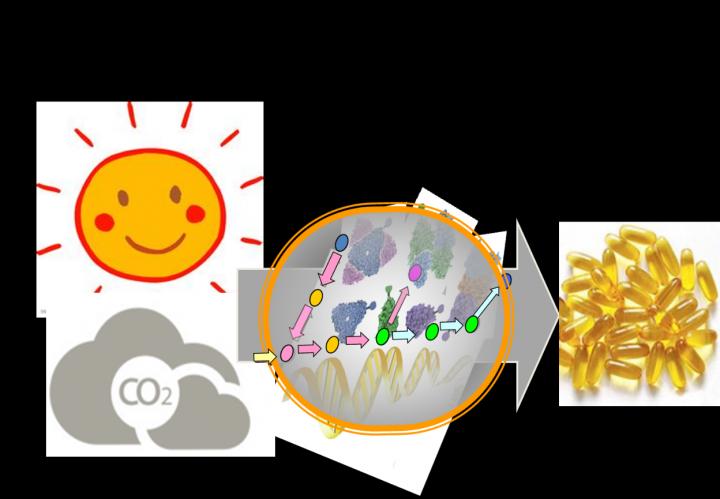
Credit: QIBEBT
Molecules of triacylglycerol (TAG), formed by attaching three molecules of fatty acid (FA) to a glycerol backbone, are the main constituents of vegetable oil in plants and fats in animals and humans. TAG plays an important role in cellular metabolism as a universal storage form and currency of energy, since its energy density is much greater than carbohydrates or proteins.
The health benefit of TAG molecules (TAGs) is dependent on which FA comprise the molecule. For example, linoleic acid (LA) can lower blood cholesterols and prevent atherosclerosis, while eicosapentaenoic acid (EPA) can treat hypertension and inflammation. Can the FA composition of TAGs be customized to create “designer” TAGs that carry tailored health benefits?
The answer is yes. A research team led by Prof. XU Jian from the Qingdao Institute of Bioenergy and Bioprocess Technology (QIBEBT), Chinese Academy of Sciences (CAS), has discovered two novel diacylglyceryl transferases (DGAT2s) that preferentially attach LA and EPA, respectively, to the glycerol backbone to form TAGs.
By modulating the ratio of these specialist enzymes in the cell, a strain bank of the industrial oleaginous microalga Nannochloropsis oceanica was created where the proportions of LA and EPA in TAGs varied by 18.7- and 34.7-fold, respectively.
LA and EPA are both “essential fatty acids” for humans. They are essential for human metabolism, but human genomes do not encode the enzymes that directly synthesize these fatty acids. Therefore, humans have to intake LA and EPA via plant or animal TAGs.
The discovery of novel DGATs that selectively assemble LA and EPA into microalgal TAGs thus lays the foundation for producing on a large scale “designer TAGs,” whether present in nature or not, for tailored or even personalized health benefits.
###
The study, published in Molecular Plant, was supported by the National Natural Science Foundation of China (NSFC).
Media Contact
CHENG Jing
[email protected]
Original Source
http://english.
Related Journal Article
http://dx.




